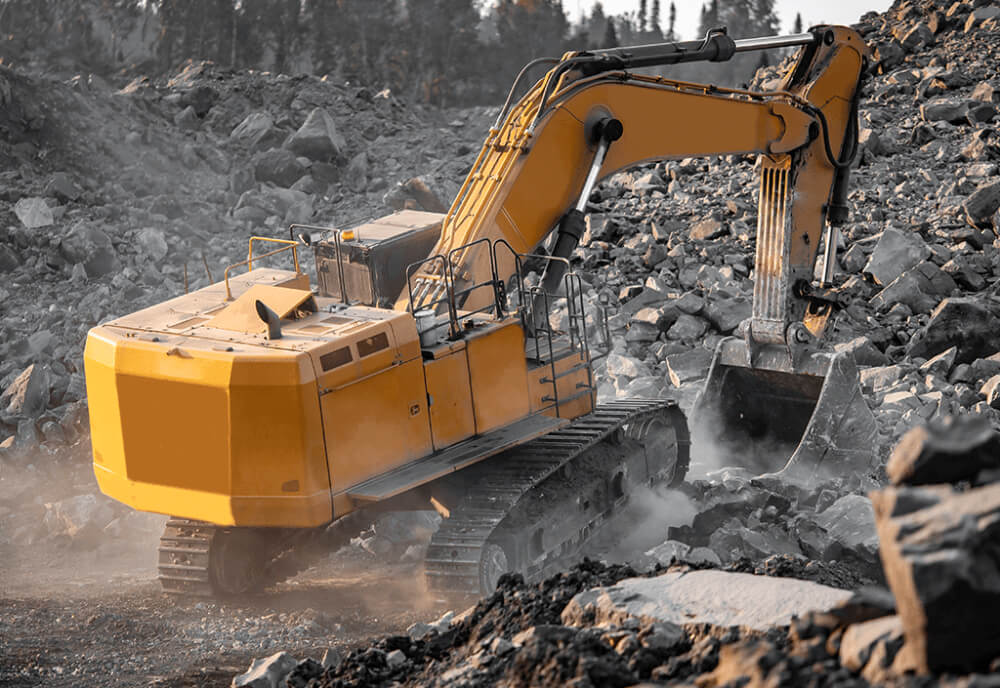When it comes to purchasing a new or used excavator, your top priority is knowing how long it will last and whether a purchase proves a solid return on investment. In this blog, we explore the average lifespan of an excavator to help you assess whether you will get your money’s worth from a purchase.
On average, a well-maintained excavator with no damage will last you somewhere between 7,000 and 10,000 hours. Of course, the lifetime hours will differ from one brand to the next – but it gives you a good ballpark figure to work with.
If you’re thinking about buying a used excavator, we recommend you check the existing hours used so you can gauge how much time to expect before it breaks down. For example, if the excavator has already completed 2000 hours, you can still expect around 5000-7000 of use time. Ultimately, it depends on what you are looking for in terms of hours and whether the time remaining is sufficient against the intended work load.
If you already own an excavator and hope to extend its life expectancy, there are a number of things you can do to help get the most out of your equipment.
Regular Inspections
Always conduct an excavator walk around inspection for 5-10 minutes every day before and after use. As you do so, look closely at each part and into its nooks and crannies. This helps you to become very familiar with your machine and quickly identify when something looks amiss. If you find damage or something of concern, arrange to have it looked at and fixed immediately – ignoring the problem will only make it worse over time. Keep an eye out for any chips, leaks, and areas in need of greasing.
Regular Maintenance
Maintaining any type of equipment is a no-brainer, and it’s no different with an excavator. Have your excavator regularly inspected by a specialist mechanic to keep it in tip-top working condition. As well as keeping the excavator at its best, it promotes a safer working environment through fewer breakdowns (which are a safety hazard).
Cleanliness
Cleanliness is crucial for machinery and not just for aesthetic reasons. Cab windows should be cleaned regularly to avoid the operator losing vision and causing a collision or injury to the driver or a pedestrian. It also helps to clean away any rubbish and clutter from the cab daily.
Additionally, cleaning the excavator tracks is essential and should be performed daily. This avoids mud on the tracks from drying, clogging up and wearing down the undercarriage and tracks. Also, make sure you give some time each day after using the machine to clear any rocks and clumps of mud from the excavator’s undercarriage. All of this cleaning forms a part of the machine’s critical maintenance.
Powering Up
When it comes to operating a machine, you need to know how much power to use per task. It is unnecessary to apply full power to every job, using more fuel than you need to and wearing down the machine at the same time. Pick your battles wisely and save money on fuel while preserving your machine!
Fill Up The Tank
Our final tip is to always fill up the machine’s fuel tank after work so it’s full, avoiding the opportunity for water from condensation or rainfall to get in.
You now have all the information required to ensure your excavator has the best chance of lasting for longer. In short, the more time you allow for cleaning and maintaining your machine, the more hours you are likely to get from it.
For more information on excavators and their lifespan, please contact us with your questions. Our team is here to help with your queries and can offer recommendations about new or used excavators when you are next in the market for one.

Pingback: What is considered a lot of hours on a excavator? – AnswerParadise.net
Pingback: How many hours is too many for a mini excavator? - How Is What